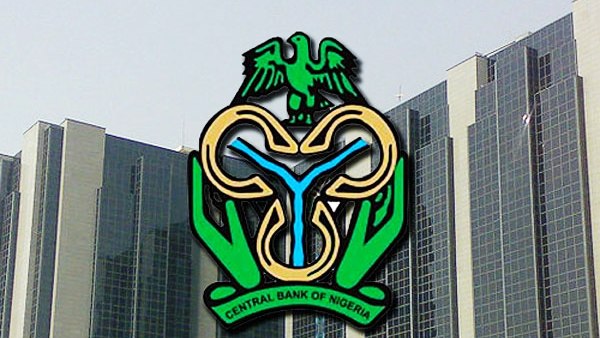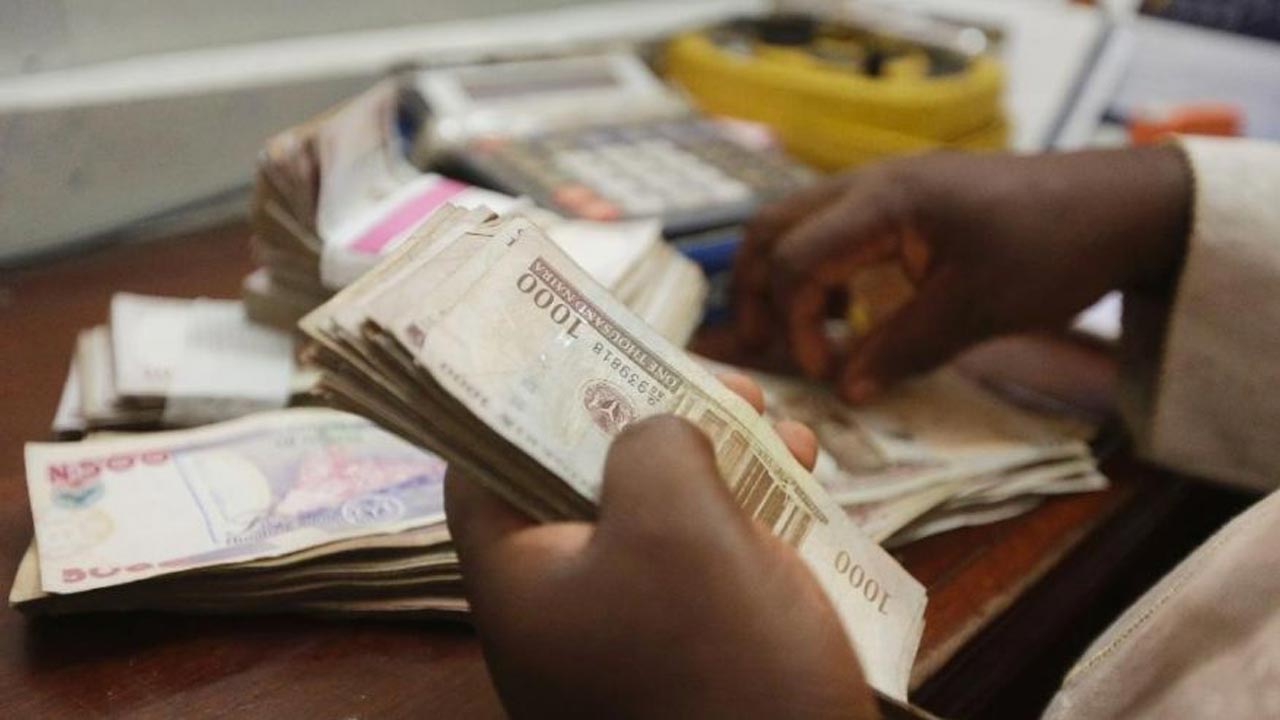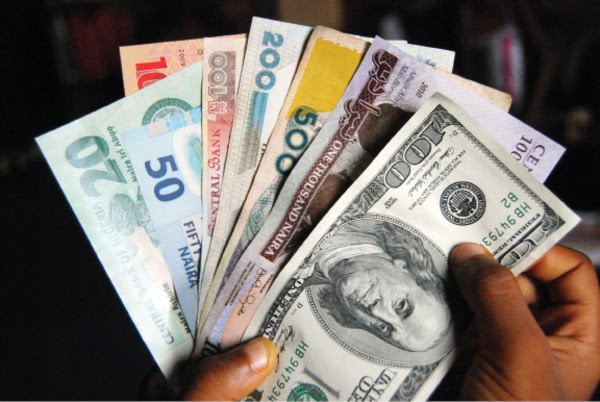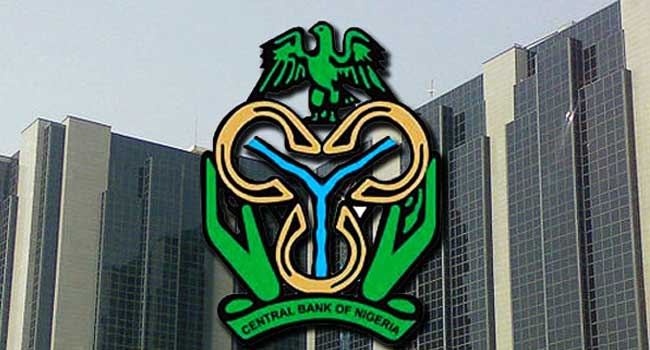By Henry Boyo
“As I speak to you, our external reserves stand above $31bn, and that provides us with enough fire power to be able to defend the Naira” Godwin Emefiele (CBN Governor, April 25th, 2017).
The question, however, is: Is the CBN actually defending the Naira? This question is addressed in the above title, which was first published in Punch and Vanguard Newspapers on 12th January, 2015. Please read on:
The serial Naira devaluation, from stronger than N1=$1 to almost N70=$1, was probably the most significant instigator of the oppressive economic challenges induced by the IMF imposed Structural Adjustment Programme (SAP). Nigeria’s once pulsating industrial base soon became almost silent, with increasing idle capacity, and unemployment.
Worse still, all wages and incomes were reduced to ‘peanut’ value by the twin bullets of Naira devaluation and inflation. Ultimately, the ‘check out’ syndrome became fashionable, with well heeled professionals and technocrats seeking greener pastures abroad to sustain dignity in their lifestyles; the brain drain, particularly amongst youths, now approaches epidemic proportions. Undeniably, the near fatal blows from SAP truncated our development and we are now listed amongst the world’s poorest nations.
Curiously, however, the exceptionally high crude oil prices, which once hovered between $100-$140/barrel, and the bountiful dollar reserves accumulated, did not redeem our economy or improve social welfare. Unexpectedly, increasing dollar reserves, which provided extended payments cover for our imports, inexplicably, continued to foster weaker Naira exchange rates, such that one was forced to wonder if less dollar reserves would actually stimulate a stronger Naira!
Well, Crude oil prices have since receded below $60/barrel, but the reduced dollar revenue, has also, undeniably, constituted another major onslaught on Naira exchange rate and economic progress.
Thus, it seems that, in our quest for increased foreign reserves and socially and industrially supportive exchange rates, we now find ourselves in a bizarre twist of “heads you lose, tails I win”. Indeed, as with SAP, IMF is also presently leading the call for further Naira devaluation. The IMF technocrats, embedded in the management of our economy, have also deliberately fostered the unfortunate notion, that Naira is actually overvalued, even when we had custody of best ever foreign reserves and more extended imports payments cover! Regrettably, government economic blueprints such as NEEDS, were predicated on the erroneous mindset that inclusive growth cannot evolve, unless the economy is first diversified; there is also the unfortunate premise that fortuitously bountiful reserves cannot induce, a stronger Naira exchange rate.
Well, today, the Naira exchange rate is closer to the N180=$1 projected in the NEEDS blueprint to drive economic diversification and growth; ironically, however, enabling rates of inflation, cost of borrowing and exchange rate stability still remain, sadly, unattainable.
Certainly, no economy can succeed when the real sector is constrained to borrow at over 20 percent interest rate, while consumer demand also remains severely hamstrung with annual inflation rates of 8-12 percent, or indeed, when Naira rate keeps depreciating, despite buoyant reserves and extended import payments cover; furthermore, economic growth and diversification will invariably remain elusive, wherever government knowingly pays over N600bn interest (over 10 percent) on loans that are simply sterilized from use, despite the crying need of the real sector for cost of borrowing to fall below 7 percent.
Sadly, CBN and our Economic Management Teams have failed to construct an enabling foundation that will support low cost of funds (3-6percent), low inflation rate (1-3percent) and a truly liberalised, non-monopolistic forex market that will drive the elusive quest for economic diversification and inclusive growth.
Nonetheless, politicians, experts, and a gullible public are once again chorusing the need for diversification, and as usual, with the unfortunate misconception that we will approach El Dorado by simply throwing hundreds of billions of Naira at various sub-sectors as intervention funds. Indeed, in an economy with an abiding burdensome problem of stupendously surplus Naira, intervention funds, regrettably, only make things worse, as they simply compound the problem of eternally surplus Naira when disbursed; ultimately, the intervention funds will instigate another kind of government intervention, which compels CBN to step up its rate of borrowing to mop up increasingly surplus Naira despite the excruciating, destabilising and distortional interest rates which crowd out the real sector from loanable funds; notwithstanding also, the collateral adverse consequences on inflation, Naira exchange rate, inclusive growth and job creation. In practice, micro and small enterprises are probably worst hit, as they generally struggle to obtain loans that are as oppressive as 6 percent/month or 72 percent annually!
Clearly, the unyielding burden of ‘eternally’ surplus Naira is actually the major obstacle in the path of creating those supportive indices which can effectively drive growth and economic diversification. Regrettably, we have remained in denial of the process through which CBN consolidates it’s so called celebrated “own reserves”! Instructively, CBN’s reserves are accumulated by capturing distributable dollar derived revenue and substituting freshly created Naira values as monthly statutory allocations to government. This arrangement, invariably increases CBN’s cache of dollars, but it sadly also, induces the burdensome spectre of surplus cash in the economy; furthermore, the pitching of such eternally surplus Naira against rationed auctions of dollars, will ultimately, unwittingly, protect the dollar market value against the Naira; consequently, CBN may have inadvertently (or is it deliberately) become a greater defender of the dollar than the Naira in the forex market!
Ironically, therefore, the higher and more bountiful the dollar revenue (from high crude prices and output) the greater also would be the fresh supply of Naira that CBN would create and unleash on the economy, as substitute allocations for dollar derived income. Thus, whenever we celebrate CBN’s rising dollar reserves, we must recognise that the consolidation of such reserves, unfortunately, also ultimately precipitates an increasing spread of surplus Naira or excess liquidity in the money market; invariably, the greater the Naira liquidity the harsher and more counter-productive would be CBN’s monetary control measures to reduce Naira liquidity, so as to restrain inflation and the ability of banks to expand credit to customers, despite the adverse economic consequences of such restrictive policies.
It seems farcical, therefore, that the same CBN whose monetary management actually intimidates and pulverises, its own child, the Naira in the forex market, can also be so wrongly, favourably perceived, as defending the Naira from its accumulated self-styled “own reserves”, which instigated the “curse” of surplus Naira and it train of adverse consequences in the first place.
It is ironical that the same Agency which sustains a market disequilibrium in favour of the dollar when it substitutes fresh Naira values for dollar denominated revenue, would later farcically turn round, in apparent defence of the Naira exchange rate, to regularly AUCTION fractions of the dollar cache it earlier captured, after it has substituted and suffocated the market with surplus Naira liquidity. Unfortunately, such unceasing, pervasive Naira liquidity consciously unleashed by CBN, invariably precipitates weaker Naira exchange rates, when eventually pitched against dollar rations auctions by CBN from its reserves.
In this event, the CBN must immediately stop digging itself into a deeper hole with a Naira defence strategy that has consistently worked against the local currency over time to deepen poverty. Surely, the adoption of dollar certificates for allocating dollar denominated revenue will eliminate or critically reduce the burden of excess Naira liquidity and therefore give the Naira a fighting chance against the dollar in the forex market.
Besides, the elimination of the oppressive burden of excess Naira liquidity will also induce lower rates of inflation and cost of borrowing to leave the door wide open for inclusive economic growth, economic diversification and rapidly increasing job opportunities.” (January 2015).
Fast forward April 2017: Reserves over $30bn; Inflation 17 percent plus; Real sector borrowing 20 percent plus; N305-N400=$1, Unemployment still rising while Excess liquidity remains unyielding! Heaven help us!
SAVE THE NAIRA! SAVE NIGERIANS!




